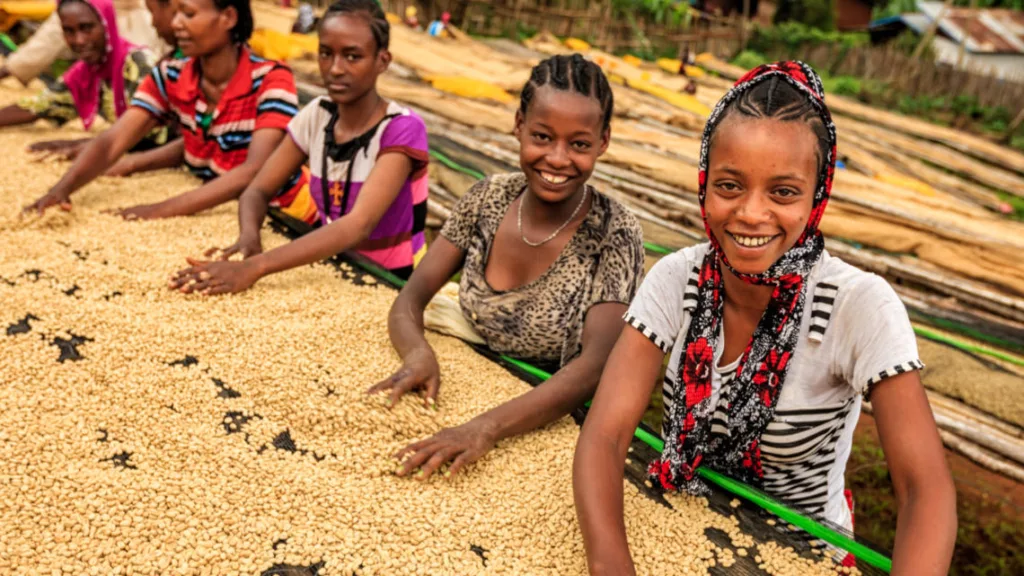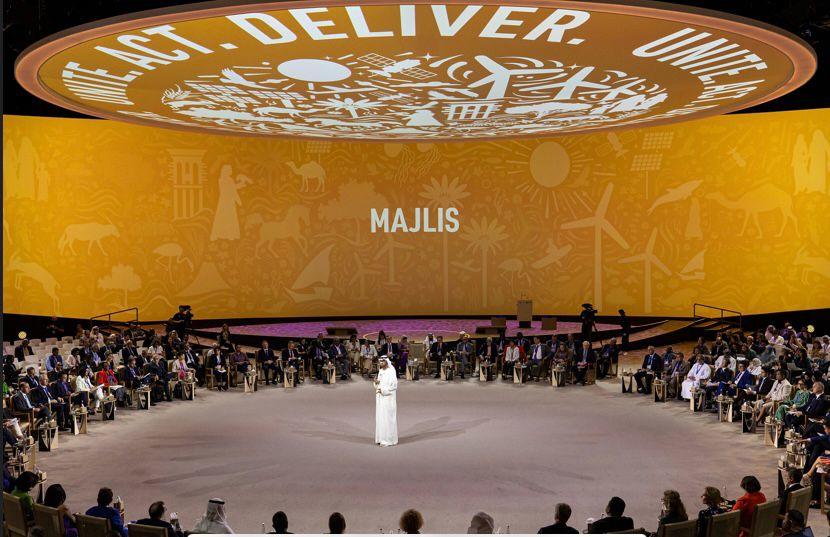Authors
Emeline Fellus, Director, Agriculture and Food, WBCSD
As COP28 gets into full swing in Dubai, business, policymakers and civil society are more aware than ever that food systems are both affected by, and contribute to, the world’s most pressing social and environmental challenges.
Since the UN Food Systems Summit in 2021, 126 countries have adopted a food systems national pathway. We have seen progress on recognition of living wage, via the new EU corporate sustainability due diligence directive, and scaling science-based solutions. Business is driving some of the needed change; with examples like Nestlé’s Income Accelerator Program aims to close the living income gap and reduce child labour risks in supply chains, and OCP’s Al Moutmir outreach initiative uses innovative and customized solutions to empower farmers.
Yet if 9+ billion people are to live well, within planetary boundaries, by 2050, more needs to be done, and quicker. On the eve of COP28, food producers make up almost two thirds of the those in extreme poverty, 3.1 billion people are unable to afford healthy diets, and agricultural systems are already feeling the impacts of climate change. Meanwhile, the land use sector represents 23% of total GHG emissions and is one of the primary drivers of biodiversity loss.
Food systems must be a focal part of the global solution to climate change
COP28 promises an unprecedented focus on food systems. The UAE COP28 Presidency’s Food Systems and Agriculture Agenda aims to drive transformative change across food and agriculture systems to secure a sustainable future for all, and WBCSD is advising on key agriculture and food issues as part of the Presidency’s Non-State Actor pillar. WBCSD welcomes the COP28 Presidency’s leadership in inviting Governments to sign the forthcoming ‘Emirates Declaration on Resilient Food Systems, Sustainable Agriculture and Climate Action’ and encourages all countries to support it, demonstrating their commitments to food system transformation.
Commitments, however, are not enough. To ensure ambition equates to change, we call on governments to integrate food and land use into Nationally Determined Contributions (NDCs) and National Adaptation Plans (NAPs) before the next NDC update in 2025. Additionally, the UNFCCC must fully integrate food systems across their process as a key pillar of change, with a continuing prioritisation of agriculture and food systems towards COP30 and beyond.
The private sector’s role is critical in contributing to a shared agenda
The private sector and other Non-State Actors have essential roles in delivering on the changes needed.
Complementing the Emirates Declaration, the UN Climate Change High Level Champions are coordinating a multistakeholder Call to Action to transform food systems, bringing together players from all non-state actor groups, including businesses, farmer groups, civil society organizations, cities and others. WBCSD is mobilizing the private sector to contribute to this shared vision, and, ensuring this ambition is matched by action, we have worked with our members to develop a supporting Business Statement of Action, highlighting the steps businesses are taking to contribute to the collective effort needed.
Action is only meaningful if it can be called accountable action. WBCSD, in collaboration with the World Benchmarking Alliance (WBA), has been developing a Progress Update to report on companies’ progress since 228 senior executives signed the Business Declaration on Food Systems Transformation at the UN Food Systems Summit in 2021.
As such, WBCSD is committed to ensuring that the ambition, action and accountability of the private sector enable trust in, and iterative progress towards, a shared agenda for food systems transformation.
We must tackle priority areas of transformation for systemic change
To realize the transformation needed, business must drive action across key global solutions, regions and value chains.
Regenerative agriculture has a critical role in meeting the needs of present and future generations while sustaining farmer livelihoods and preserving nature. Through the COP28 Action Agenda on Regenerative Landscapes, WBCSD is working with the COP28 UAE Presidency, High-Level Climate Champions and BCG to aggregate, accelerate and amplify new and existing commitments to transition large agricultural landscapes to regenerative agriculture by 2030. 25+ leading food and agriculture organizations are joining forces at COP28 to unveil an ambitious action package that will translate commitments into tangible projects. WBCSCD and its partners are co-hosting a launch event, where speakers will showcase stories of landscape transformation across the globe, complemented by sessions on finance, public-private partnerships and accountability for regenerative agriculture throughout the fortnight.
Healthy and sustainable diets are essential for human and planetary health. Crop diversification, food product reformulation and diverse proteins to enable dietary options for people, planet and health are key priorities of WBCSD and our members’ work. At our 2023 Council Meeting, executives from leading sustainable businesses discussed opportunities to secure nutritious food for all, within planetary boundaries. Led by the work of WBCSD’s Food and Nutrition Security Taskforce, companies aligned on the need to embrace across value-chain interventions that take into account the local context of food and nutrition security and ensure that the costs and benefits of the transition are equitably distributed through the value chain.
A fit for purpose Corporate Performance and Accountability System (CPAS) including disclosure of scope 3 emissions and harmonization of methodologies, standards and reporting requirements, in complex areas such as scope 3, living incomes and nutrition, is essential to ensure trust and transparency. Together with our members we are working to ensure the integration of greenhouse gas (GHG) emissions, including scope 1, 2 and 3 emissions, into balance sheets. A number of our sessions at COP28 explore opportunities to accelerate scope 3 emissions reductions and removals associated with land use.
Multistakeholder solutions are essential to enable transformation
Systemic level change cannot be fulfilled without collaboration. We are keen to work with governments and other stakeholders to deliver the step change in ambition needed. We ask policymakers to leverage the food sector’s unique capabilities and taking a systemic approach to food and agriculture, addressing interrelated imperatives including inequality, climate change, biodiversity loss and food and nutrition insecurity. Food system sustainability must be integrated throughout decision-making, through collaboration across boundaries of ministry, nation and stakeholder groups. Policy must serve to incentivize and enable business accountability, ensuring thorough reporting and disclosure.
Perhaps most significantly, all stakeholders, including governments, must utilize the power of multistakeholder collaboration. To recognize and mitigate the integrated impact of food systems on people, climate and nature, collaboration is more important than ever before.
COP is a crucial moment to drive public-private collaboration and accelerate action for transition and presents us with a unique opportunity to put food systems at the heart of action. We are confident that we can accelerate action towards regenerative and equitable systems producing nutritious food for all, if we develop new, bold and brave ways of working together. This is what WBCSD aims at doing at COP 28 and in 2024.
Outline
Related
Content

Business action to unlock the potential of African farmers – WBCSD’s takeaways from the AGRF Summit 2023
14 September, 2023

COP28 and Beyond: From Pledges to Action, Nature Takes Center Stage in 2024
19 December, 2023

COP28 Summary – What Does the Global Stocktake Mean for Business?
18 December, 2023

